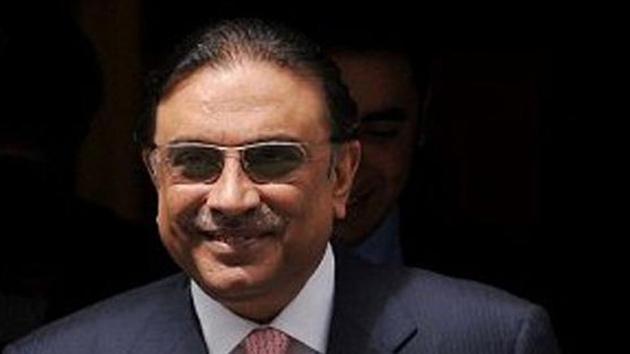Former Pakistan president Asif Ali Zardari arrested by anti-corruption agency
The anti-graft body has arrested several politicians on corruption charges since Prime Minister Imran Khan took office last year. Khan’s predecessor, Nawaz Sharif, was removed from office by the Supreme Court over corruption allegations.
Former Pakistani President Asif Ali Zardari was arrested on corruption charges on Monday, a Pakistani official told news agency Reuters, in a blow to the opposition Pakistan People’s Party.

National Accountability Bureau (NAB) spokesman Nawazish Ali said Zardari has been arrested, but did not provide details. Local media channels said NAB arrested Zardari over its investigation into fake bank accounts and money laundering.
The former president could not be reached for comment but he has denied any wrongdoing linked to those cases, and his PPP party says the cases are politically motivated, Reuters said.
The anti-graft body has arrested several politicians on corruption charges since Prime Minister Imran Khan took office last year. Khan’s predecessor, Nawaz Sharif, was removed from office by the Supreme Court over corruption allegations.
Zardari, the husband of assassinated former prime minister Benazir Bhutto, Zardari spent 11 years in jail on corruption and murder charges before becoming president in 2008. He was never convicted and denies any wrongdoing. He was Pakistan President from 2008 to 2013.
The arrest came hours after the court refused to extend bail granted to Zardari and his sister Faryal Talpur.
Over two dozen politicians and others have been under investigation for money laundering from fictitious accounts, including Zardari and Talpur.
Zardari’s close aide Hussain Lawai was arrested in July in connection with the probe. Omni Group chairman Majeed and his son, Abdul Ghani, were arrested by Federal Investigating agency in August.
According to news agency PTI, over 20 ‘benami’ accounts at some private banks were opened in 2013, 2014 and 2015 from where transactions worth billions of rupees were made. The amount, according to FIA sources, is said to be black money gathered from various kickbacks, commissions and bribes.






